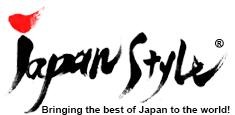Japanese standard manners can be strange for those who have different cultural back grounds. Exactly, what Japanese manners make them confuse?
Excite News had an interview with some Europeans who work at Japanese firms, and asked them what manners or customs were hard to get used to at work.
Below are their answers. (Nationality and Age)
-Bow
“I was surprised to see them bowing like a hundred times a day.” (Spain, 30)
“There are so many different kinds of bows that I don’t know which one to pick.” (Germany, 31)
-Exchanging Business Cards
“What we learned first in the employment training program was how to exchange business cards. In Japan, it involves strict etiquettes like you have to receive a card with both hands.” (Germany, 29)
-Meeting
“In France, meetings involve hot heated discussion. In Japan, meetings go quietly and smoothly. Later I found out that they lay the groundwork prior to the meeting. That shocked me.” (France, 28)
“It sounds strange when the Japanese say ‘That would be an idea but isn’t that…?’ Why do they attune to people that have opposition viewpoints?” (France, 28)
-“I’m Sorry”
“When the Japanese speak in English, they say ‘I’m sorry’ every so often. But we don’t understand why they apologize. When I was in Japan, everywhere I went I heard ‘sumimasen,’ and now I know why they say ‘I’m sorry.’” (England, 28)
Sumimasen means “excuse me” or “I’m sorry,” and it is also used as “thank you” depends on the situation.
The Europeans also mentioned that the Japanese observe the rules scrupulously.
“The Japanese are very polite and keep rules. It’s so odd that people and cars cross the multiple (scramble) intersection in Shibuya without hearing a sound of horn.”
“It’s such a large city but there is no trash on the streets. There’s no other nation that obeys the rules like Japanese.”
Having thoughtfulness and consideration is the essential etiquette in Japan; however, the meaning of etiquettes is obscure to non Japanese, while Japanese people’s punctuality is mostly appreciated.
Source: Excite News (Japanese)
This is JAPAN Style!









Recent Comments